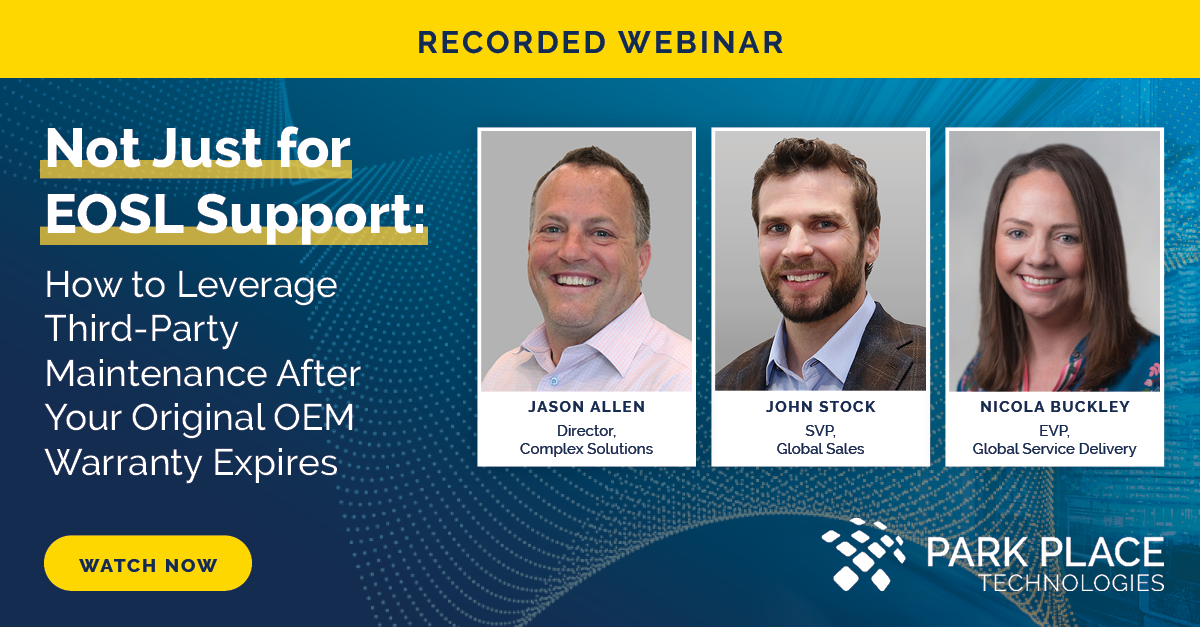NetApp FAS2040 in the Age of the FAS2240
Park Place Hardware Maintenance
With storage hardware, it seems as if every investment in a new array, like the NetApp FAS2040, is immediately greeted by the OEM’s introduction of the next new thing. Can you say FAS2240?
If you are the midsized enterprise with a distributed environment for which the NetApp FAS2240-2 was specifically engineered, you may be wondering whether you need to purchase this storage system. Available here is a highly detailed review of the NetApp FAS2240-2, the 24-bay, 28.8 TB SAN/NAS storage device, which scales to 509TB with expansion disk shelves.
The review is essentially positive. But NetApp’s introduction of a great replacement to an existing line is no surprise—nor is it sufficient reason to upgrade from the NetApp 2040.
Although it can be hard to resist the pull of new equipment with enhanced features, the NetApp FAS2040 still has a lot going for it. The 2200 series involved a “repositioning” of the 2040, but there’s been no definitive phase-out. Plus, you’ve still got the SAN and NAS capabilities you need, Ethernet or Fibre Channel connectivity, and (with external chassis) up to 136 TB of space. Not bad.
At this point, the reasonable solution for most organizations will be to skip the FAS2240 and reevaluate after the next product refresh. Doing so will save you from upgrading just in time to gaze longingly at whatever comes next.
Next Up: The NetApp Maintenance Question
Once you’ve solved the hardware purchase conundrum, the next question you should ask is What to do in the meantime?
Your FAS2040 is almost certainly post-warranty, and if you’re still anteing up for a NetApp support contract, the 2240 features PLUS warranty coverage might break your resolve to keep the FAS2040 in place. Knowing that you can save 30% to 70% annually on a high quality maintenance contract, however, should reinforce your decision.
Here are some facts that should make you even more confident:
- Top tier third party maintenance outperforms NetApp. The OEMs tend to be rigid and bureaucratic, whereas the best third party NetApp maintenance providers offer personalized service that is just plain better. For example, we assign you a Level 3 engineer, who comes to know your needs and systems. Oh, and you get immediate access to real help (not help desk non-help) with no escalation procedure. That alone shows why we can get your questions answered and your problems solved in the time you’d usually sit on hold with NetApp.
- Customers benefit from unbiased input. If you rely on NetApp, every solution they pitch will ultimately be tied up with NetApp as a company. That means new equipment will often be a “must” to overcome whatever issue you raise—not because you really need it, but because NetApp really needs to sell it. A third party maintenance provider, on the other hand, doesn’t care if you buy new hardware or not. We care whether your systems are meeting your needs, and we can help you make decisions that will maximize performance, reliability, etc., within your budget.
- Long-term decisions about hardware viability are back in your hands. History shows that NetApp is going to refresh its product line every three years, and then the “old” hardware is going to lose support sometime thereafter. On this blog, we often compare this situation to a treadmill; data center managers are constantly flogging themselves to buy, install, configure, migrate data, train staff on, and otherwise deal with new hardware as perfectly functional systems are declared EOSL by their maker. Is all this running around really in your best interest? With a company like Park Place, there is no EOSL, so you can get back to doing your real job.
What more could you ask for? How about getting maximum value out of your IT investments? This white paper covers the role of third party maintenance in doing so. A quick read may put the final nail in the NetApp maintenance coffin for the FAS2040 and all the other gear you know, own, and love.



